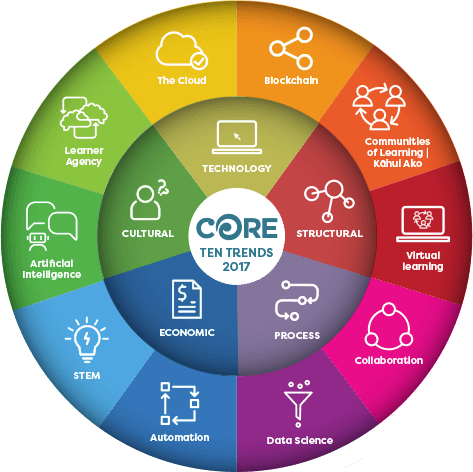Communities of Learning | Kāhui Ako represent a new structural way of thinking about the New Zealand education system, placing the learner at the centre of design decisions, and connecting all the settings that make up their educational pathway.
Learn more
